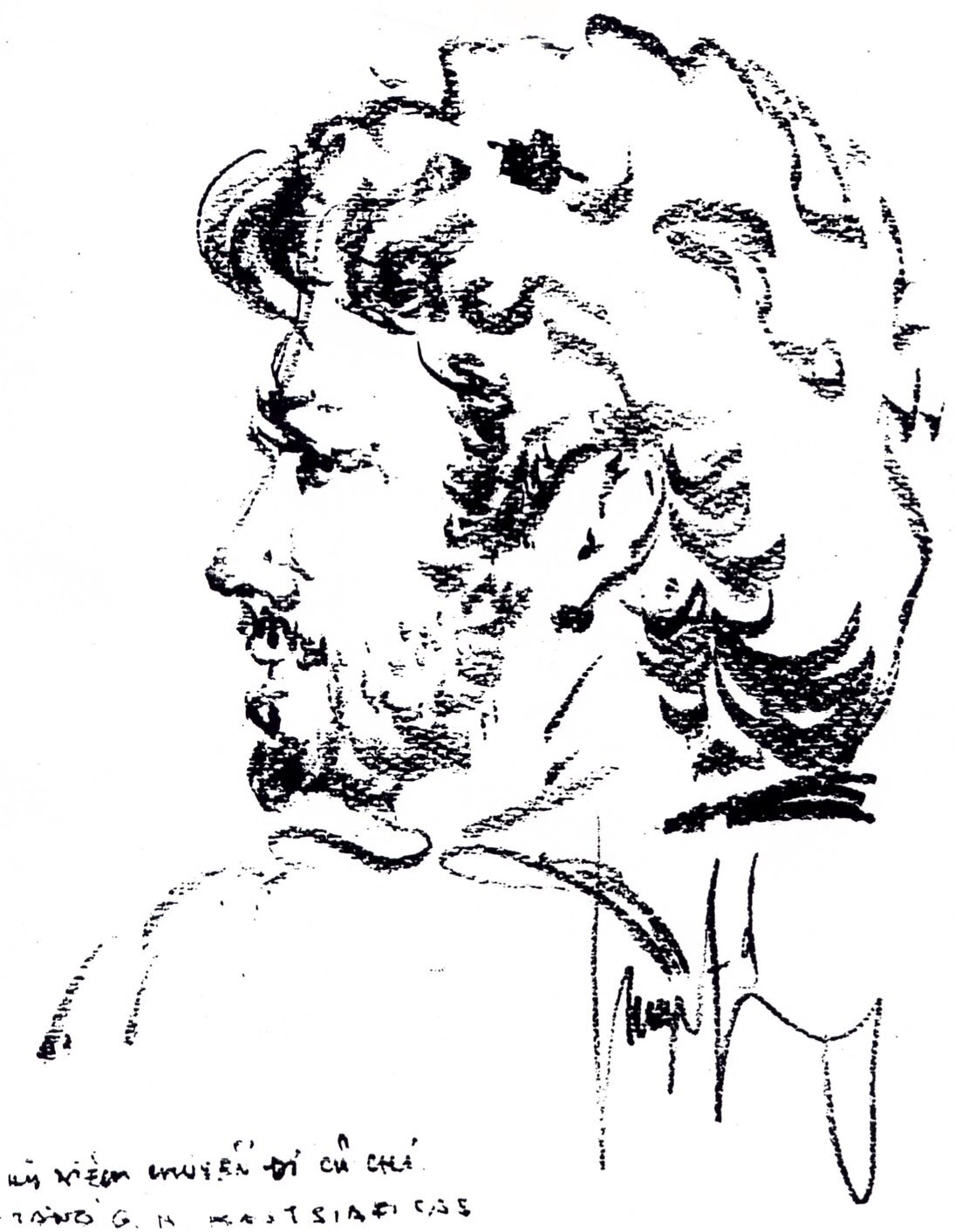Drawing by Hyun Phan Dong
Biography
Born in El Paso, Texas, in 1949, George Katsiaficas grew up in the US Army. By the time he left home to go to college at MIT, he had lived more than half his life abroad, in Germany and Taiwan. In the US, he went to public schools in Brooklyn and Queens, New York, and finished high school at Baltimore Polytechnic Institute (a public inner city school).
Katsiaficas has been active in social movements since 1969. In 1970, in the midst of the nationwide student strike, he was graduated from MIT while in solitary confinement after being convicted of “Disturbing a School” for organizing anti-war protests. After his release from prison, he founded the Red Bookstore in Cambridge. Escaping continual arrests and prosecution in Cambridge for his support of the Black Panther Party, he moved to California, where he helped build a network of countercultural institutions in Ocean Beach, San Diego. He went on to lead an anti-police movement, founded another collectively managed non-profit bookstore, helped organize a food coop, and led study groups based upon the writings of James and Grace Lee Boggs. After driving a taxi for several years, he became friends with Herbert Marcuse and enrolled at UCSD, from which he earned his PhD in 19--.
With Marcuse’s support, he received a Fulbright Fellowship and enrolled at the Free University of Berlin. In his doctoral thesis, he uncovered the “Eros Effect” to explain the global synchronicity of movements in 1968. His 1987 book, The Imagination of the New Left: A Global Analysis of 1968, was the first study to comprehend a globally unified uprising among the plethora of diverse social movements involving millions of ordinary people that had emerged simultaneously, rejecting dominant values such as national chauvinism, hierarchy, and individualism. In 2007 at a conference at Queen’s University in Canada, he maintained that despite the relative quietude then prevailing, protests on a global scale were soon to erupt, a prediction verified by the subsequent Arab Spring, Occupy Wall Street, and Black Lives Matter movements. (See AK Thompson, ed., Spontaneous Combustion: The Eros Effect and Global Revolution, SUNY Press, 2017).
For years, Katsiaficas taught at Boston’s Wentworth Institute of Technology, a working-class college, during which time he was a research affiliate at Harvard University in both European and Korean studies. After his book on 1968 was translated into Korean and became something of a bestseller, he visited Gwangju for the first time in 1999. In 2007, he was awarded a Fulbright fellowship to Korea, and he lived and taught at Chonnam National University in Gwangju, South Korea for many years. His research and writings have consistently challenged Eurocentric and traditional approaches to social theory. Inspired by the 1980 Gwangju People’s Uprising, he devoted 13 years to completing his two-volume book, Asia’s Unknown Uprisings, which places Gwangju at the center of a wave of Asian insurgencies that overthrew eight dictatorships in six years.
His second book, The Subversion of Politics: European Autonomous Social Movements and the Decolonization of Everyday Life (1997), analyzed post-1968 radical formations in Germany, Switzerland, Italy, Holland and Denmark. His writing about the German autonomous movement, with its emphasis on revolutionary politics, squatted housing and cultural spaces, and street militancy including black bloc tactics, was influential for many anarchists and other US-based radicals at that time.
Katsiaficas is a militant researcher, who lives amongst and collaborates with the people he writes about and sees his research as advancing global activism, not simply describing or analyzing it. Together with Kathleen Cleaver, he edited Liberation, Imagination and the Black Panther Party. His latest book, The Global Imagination of 1968: Revolution and Counterrevolution (PM Press), discusses Sixties’ movements in more than fifty countries and outlines global waves of uprisings subsequent to 1968. During his international sojourns, he has been active in liberation struggles in Germany, Lebanon, Korea, Greece and other places. His books have been translated into Korean, Russian, Greek, and Spanish.
He was editor of New Political Science, 1998-2003, Chairperson of the Caucus for a New Political Science, 19891991, and founded a book series for the Caucus. Honors include the Kim Dae-jung Scholar’s Award at Chonnam National University; being made an Honorary Citizen of Gwangju; and the Charles A. McCoy Career Achievement Award presented by the Section for a New Political Science of the American Political Science Association (2011).
